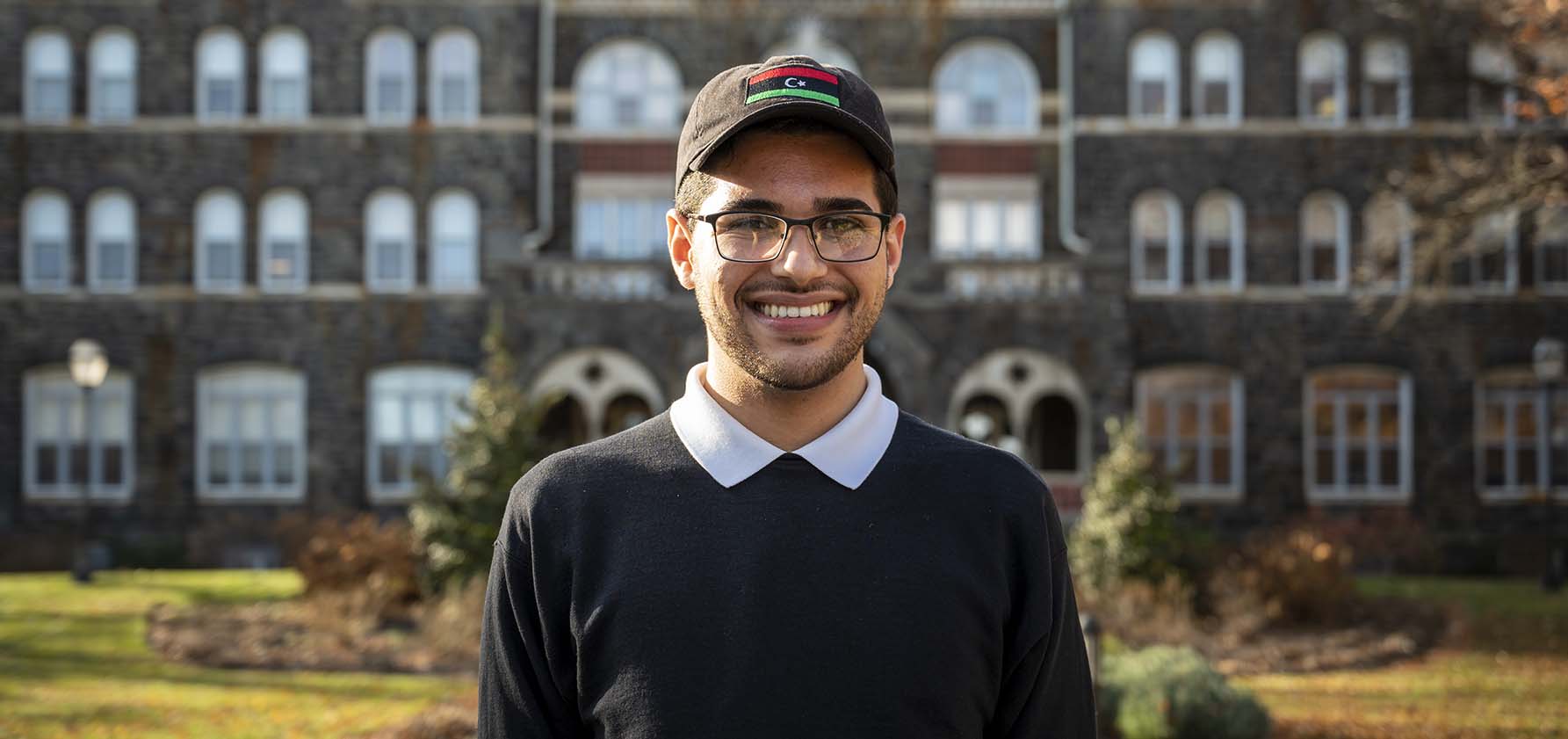
I grew up in Bethlehem, Pennsylvania. I’m not sure if that has really influenced me in any notable way on its own. Even though I was raised in an American city, I spent the majority of my time growing up surrounded by family members who were all raised in different countries. Because of that, I think I’ve come to be a bit more influenced by my international roots than I am by my Bethlehem roots.
What is your major or academic interest and what drew you to it?
I am currently a philosophy major and am also pursuing a self-designed minor in Islamic Studies. Outside of my declared major and minor, I am also very interested in political science. My academic interests primarily revolve around ethics as it applies to issues related to gender, sexuality, love, and human rights, with special focuses on the study of Islamic sexual jurisprudence and the human rights of queer peoples in the Muslim-majority nations of Southwest Asia and Northern and Western Africa. I want to take philosophical, political, and religious approaches to prove that individuals can be both queer and Muslim and that queerness is synonymous with Islamic identities. There aren’t many people who work to show queer Muslims that their existence isn’t shameful or unlawful, as dialogue about queerness is taboo in the Muslim-majority world, and discussions focusing on the experiences of queer Muslims don’t take place frequently in countries outside of the Muslim-majority world either. I think that it’s extremely important to find ways and spaces where queer Muslims are allowed to unapologetically embrace their sexuality and not feel as if they have to choose between their queerness or their belief in Islam. If nothing else, I hope to at least inspire some dialogue about this at some point.
What activities are you involved in?
I’m currently a member of the philosophy club and was just elected as its president for the 2022–2023 academic year. (If that’s not reason enough for more people to join, I don’t know what is!) I’m also a recipient of and participant in the Humanities Fellowship Program, a member of the Phi Eta Sigma Honor Society, and a student worker in Reeves Library, where I work both in Tech Services and as the (unofficial) assistant to the archivist.
What’s next after you graduate?
That’s the big question isn’t it? Right now, I’m hoping to be able to go on to earn at least a master’s degree if that’s in the cards, but I’m not sure exactly what field or university I want to pursue just yet.
Tell us about one of the best experiences you’ve had at Moravian University?
It’s hard to choose one standout experience. Honestly, as corny as this might sound, participating in this Q&A is such an amazing experience! I feel so honored and thankful to have been invited to share a bit about myself with the community like this.
Share something about yourself that may surprise people.
I’m not sure what people do know about me, so I don’t really know what somebody might be surprised by. One thing that people might not know is that I’m a dual citizen of both the United Kingdom and the United States!
What is your favorite spot on campus and why?
I think I’d have to go with DeLight’s Café. The staff there are some of the nicest people I’ve met at Moravian.
What is your favorite thing to do when you’re not studying and why?
This is definitely another corny and cliché answer, but I honestly love nothing more than spending time with friends and family!
What book, film, song, or piece of art has so touched you that you find it enduring, unforgettable?
There are two films that I’ve seen recently that I’ve found to be particularly touching and impactful, Persepolis and Paradise Now, which I watched for my “Politics of the Middle East” course with Professor Farbod. Both of these movies offer really humanizing accounts of the peoples of Iran and Palestine, respectively, and I found them to be particularly touching because of that. It’s really difficult to find films or any other forms of creative media that don’t completely demonize Muslims, Iranians, and Palestinians, in particular, and I think that’s what made watching these two films so impactful. They are truly some of the first films I’ve ever seen where the Muslim characters are dynamic people who aren’t just there to fulfill the role of being terrorists.
Photo: Nick Chismar